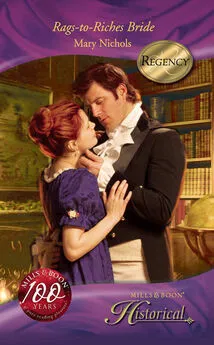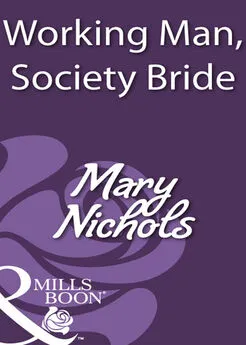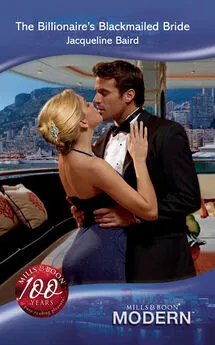Mary Nichols - Rags-to-Riches Bride
- Название:Rags-to-Riches Bride
- Автор:
- Жанр:
- Издательство:неизвестно
- Год:неизвестен
- ISBN:нет данных
- Рейтинг:
- Избранное:Добавить в избранное
-
Отзывы:
-
Ваша оценка:
Mary Nichols - Rags-to-Riches Bride краткое содержание
Rags-to-Riches Bride - читать онлайн бесплатно ознакомительный отрывок
Интервал:
Закладка:
The feel of his mouth on hers sent shock waves right through her.
Her knees began to tremble, and would have buckled if he had not been supporting her, holding her so close against him she could feel his warmth, turning her insides to liquid fire. She seemed to have left the ground, flying from all earthly things, all sensible thoughts. She wanted this man. She wanted the kiss to go on, to lead to other transports of delight she could only imagine. She clung to him, returning his kiss in full measure.
It was only then he realised what he was doing and released her. They stood facing each other, breathing heavily. Neither spoke. She did not condemn him; any sign of anger would be a pretence, and he must know it. Nor did he regret what he had done—though he did not know why he had done it, nor why a simple stolen kiss should have such a devastating effect on him. It had unnerved him. He opened his mouth but no words came from his lips. ‘Sorry’ seemed inadequate. She was lovely, and the temptation had been great, but that did not excuse him. Besides, he wasn’t sorry.
Born in Singapore, Mary Nicholscame to England when she was three, and has spent most of her life in different parts of East Anglia. She has been a radiographer, school secretary, information officer and industrial editor, as well as a writer. She has three grown-up children, and four grandchildren.
Recent novels by the same author:
THE HONOURABLE EARL THE INCOMPARABLE COUNTESS LADY LAVINIA’S MATCH A LADY OF CONSEQUENCE THE HEMINGFORD SCANDAL MARRYING MISS HEMINGFORD BACHELOR DUKE AN UNUSUAL BEQUEST TALK OF THE TON WORKING MAN, SOCIETY BRIDE A DESIRABLE HUSBAND RUNAWAY MISS
RAGS-TO-RICHES BRIDE
Mary Nichols
www.millsandboon.co.uk
Chapter One
1837
‘Papa, you will make yourself ill if you do not take some nourishment,’ Diana said, leaning forward to take the half-empty glass of cognac from her father’s hand and put a plate of food on the table in front of him.
‘Not hungry.’
‘No, I am told strong drink dulls the appetite.’ She put his glass down on the table and sat down opposite him. He had once been robust, weatherbeaten from years at sea, a loving husband and beloved father who made their lives carefree and interesting, until four years before when his left arm had been amputated after a skirmish in the Indian Ocean and he had given in to his wife’s pleading to leave the service before it killed him. The loss of his arm and what he termed a life of uselessness on shore had started the downward slide, but while her mother was alive he had still been the father she knew and loved. Since Mama’s death he was not the same man at all.
‘We cannot go on like this, Papa. Something must be done.’
‘What about?’
‘How we are to manage.’
‘I have a pension.’
She sighed. ‘I know, but it is not enough.’ She was tempted to add that he drank most of it, but that would have been cruel and she desisted. Together with the tiny pension, he had left the service with a small accumulation of prize money but that had disappeared very quickly trying to keep up their hitherto comfortable way of life. They had been forced to dismiss their servants, sell their furniture and move into smaller accommodation, and when even that proved too much to maintain, to these two rooms in a boarding house in Southwark. These were poorly furnished; though Diana did her best to keep them clean, the grime seemed ingrained in the fabric of the tall, narrow tenement. It was difficult to maintain standards, but she was determined not to let them slide even further into poverty.
Her mother had made ends meet by taking in fine embroidery from a dressmaker in Bond Street, but now Mama was gone, worn out with the stress of it all, Diana knew she had to do something herself to keep the wolf from their door. She had no one to turn to, not a relative in the world that she knew of, and her father was becoming more and more hopeless.
If only he would rouse himself, he was not beyond a little light work, but he did not seem able to drag himself out of the pit he had dug for himself. In the two months since Mama’s death, he had spoken only briefly and then only when necessary, and he had hardly eaten at all. His diet consisted almost exclusively of strong liquor with which he hoped to achieve oblivion.
‘I must find work,’ she told him. ‘The rent is due and there is very little food in the larder.’
‘Do what your mama did.’
‘I tried that yesterday. Madame Francoise told me I was not skilled enough.’ That had rankled, considering she had been doing most of the work since her mother became too ill to do it herself, though they had never told Madame that. ‘Plain sewing, perhaps, but they had nothing to offer me; in any case, the wages for that make it no more than slave labour.’
‘We will manage.’ He reached for his glass and she gave up. It was up to her to do something. If she did not find work soon, she would have to sell her mother’s necklace. Mama had given it to her just before she died and Diana treasured it as a lasting memory. Its stones were a pale greenish colour, which she thought were opals, set in silver filigree. She doubted it was valuable—her father had never been wealthy enough to indulge in expensive trinkets—but it would be a dark day indeed when that had to go.
Swathed in mourning black in spite of the heat of a summer’s day, she left their lodgings and set out with a handful of advertisements culled from the newspaper, determined to find something, but everything she tried—lady’s companion, lady’s maid, governess to small children—all required her to live in and that she could not do. Who would look after her father if she did not come home to him every night? She thought of teaching, but her education had been so unconventional that she was not considered suitable, except at dame-school level and the pay for that was barely enough to feed her, let alone her father. Besides, she knew their landlady, Mrs Beales, would not allow her to use their lodgings for the purpose.
The man in the employment agency she tried was disparaging. ‘I could try for a position as a domestic servant,’ he said, ‘but I doubt you would suit. You need to be properly trained and experienced, and have excellent references…’ He paused to shrug his shoulders and look over his spectacles at her with a certain amount of compassion. This applicant had obviously been genteelly brought up, not in the highest echelons of society but high enough to exclude her from menial tasks. Beneath her large unbecoming bonnet, her complexion was unlined and unmarked, her hands were smooth and white; her clothes, though not the height of fashion, were well made in a good bombazine. ‘And in any case, you would need to live in.’
‘I cannot do that,’ Diana told him. ‘I have to look after my invalid father.’
‘Then I am afraid I cannot help you.’
She had known before she entered that it was hopeless. She thanked the man and set off she knew not where. Unwilling to go home with her mission unaccomplished, she walked down Regent Street and turned into Burlington Arcade. Perhaps she could obtain some plain sewing from one of the many fashion shops that traded on that busy thoroughfare—low pay was better than no pay at all. The shops were all high-class establishments, catering for the elite. Surely someone would employ her?
She stopped to look into the window of a shop displaying costly silks, ornaments and trinkets imported from India and the Orient. She had seen items like that on her travels being sold in noisy bazaars and market places, at a time when she had been happy and carefree. Better not dwell on that, she decided, turning away. And then her eye was drawn to a ticket in the window. ‘Clerk wanted,’ she read. ‘Conscientious and quick at figuring. A good hand essential. Apply within.’
Diana knew perfectly well they wanted a man; ladies simply did not do that kind of work, but she did not see why they could not if their skills were appropriate. She and her mother had often travelled abroad when her father had been posted to some far-off station and she had been taught by her parents, augmented by her own curiosity, about the sights and sounds of foreign places they visited, as well as through her reading, which was wide ranging. Surely that must count for something? She pushed open the door and her nostrils were immediately assailed by a mixture of spices and perfume, which had once been so familiar to her.
A tall gangly youth came towards her, a smile of welcome on his face, assuming she was a customer. It was no good stating her errand to him; she would be laughed off the premises. She drew herself up to her full five feet five inches and faced him squarely. ‘I would like to speak to the proprietor.’
‘Mr Harecroft?’
‘If that is his name, yes.’
‘Do you have an appointment?’
‘No, but he will see me. My name is Miss Diana Bywater.’
She made herself sound so confident that he did not doubt her. He asked her to wait and disappeared into the back of the premises, while she looked about her. The shop was spacious and well laid out. There were shelves full of bolts of silk, muslin, gingham and chintz in a rainbow of colours, and others displaying ivory ornaments, snuff boxes, fans and tea caddies. Towards the back were larger items, stools and intricately carved chests. These were the source of the exotic odours. She had not noted the name of the establishment and remedied the omission by going to the door and reading it from the facia. ‘Harecroft Emporium’ it said in gold lettering. She had barely returned inside when the young man came back.
‘Please follow me.’
She was conducted through a labyrinth of rooms, all packed with merchandise, and up a flight of stairs along a corridor lined with closed doors, then up a second flight and along another corridor to a door at the end, where the young man knocked and ushered Diana in. ‘Miss Bywater, sir.’
Diana walked into the room, trying not to let the man who rose to greet her see that she was shaking. He was in his middle years, his hair the colour of pepper sprinkled with salt and his eyes piercingly blue. He wore a dark grey frock coat and striped trousers. His collar was tall and stiffly white, his cravat slate grey. ‘Miss Bywater,’ he greeted her, holding out his hand. ‘How do you do.’
‘Very well, sir.’ She shook the hand and allowed herself a quick look about her. The room was large. The desk from which he had risen to greet her was in its centre, facing the door. One wall was covered in shelves containing ledgers and boxes, a large window occupied the middle of another wall and there were several upright chairs and two small tables. She was favourably impressed by its neatness and the fact that there was a square of good-quality carpet on the floor surrounded by highly polished boards. ‘You are the owner of this establishment?’
‘I am its proprietor. It is one of several under the Hare-croft banner. Please sit down.’ He resumed his own seat behind his desk and steepled his hands on it, waiting for her to state her business.
‘I see from the card in your window that you are seeking a clerk.’
‘We are indeed.’ Again he waited.
‘Then I am that clerk.’
‘You!’ He made no attempt to disguise his amusement. ‘You are a woman.’
‘So I am.’ She looked down at her skirt as if to confirm this, but really to renew her courage, before raising her eyes to meet his gaze. ‘Would you prefer a man? I could dress up in a man’s clothes and cut my hair. Would that make a difference?’
Читать дальшеИнтервал:
Закладка:










